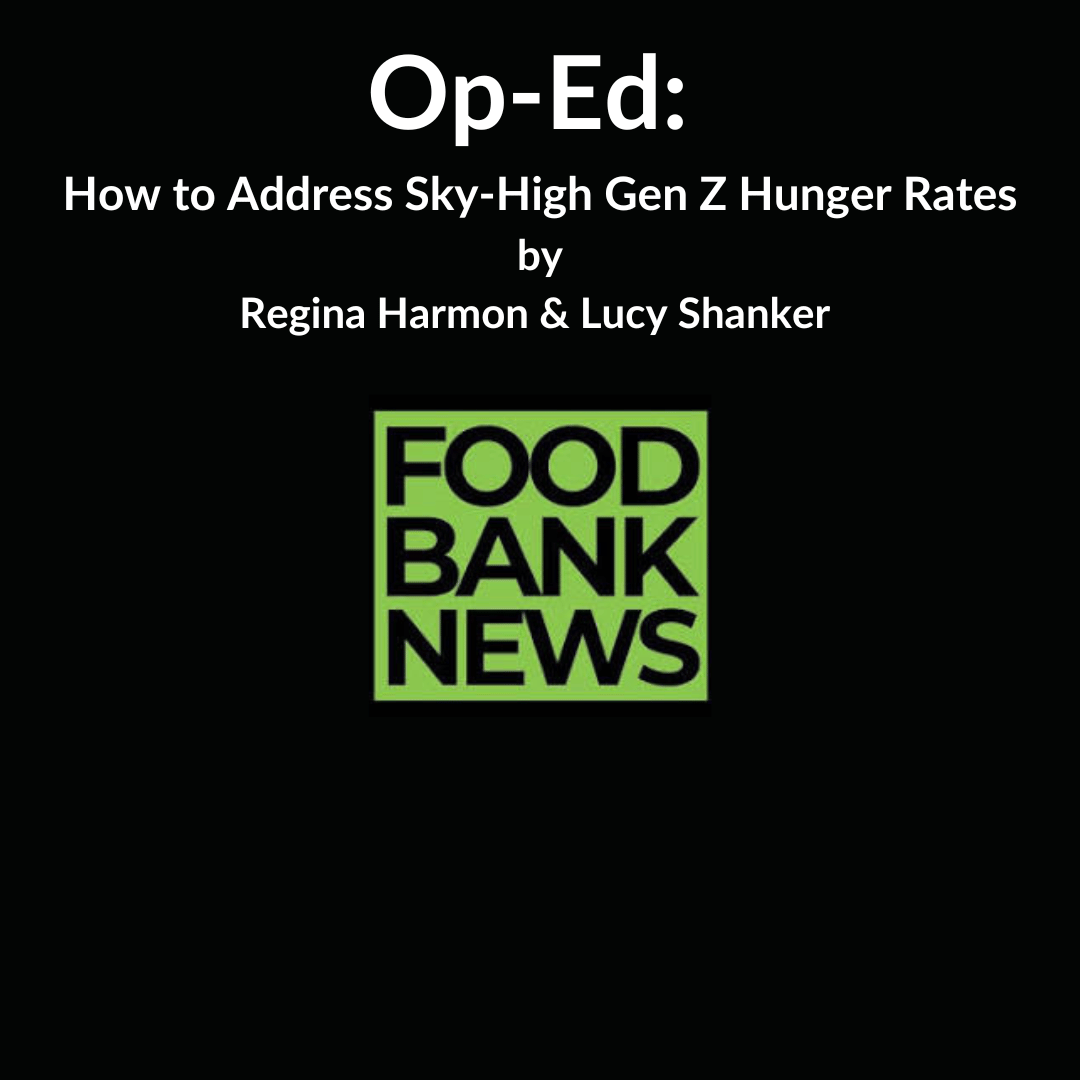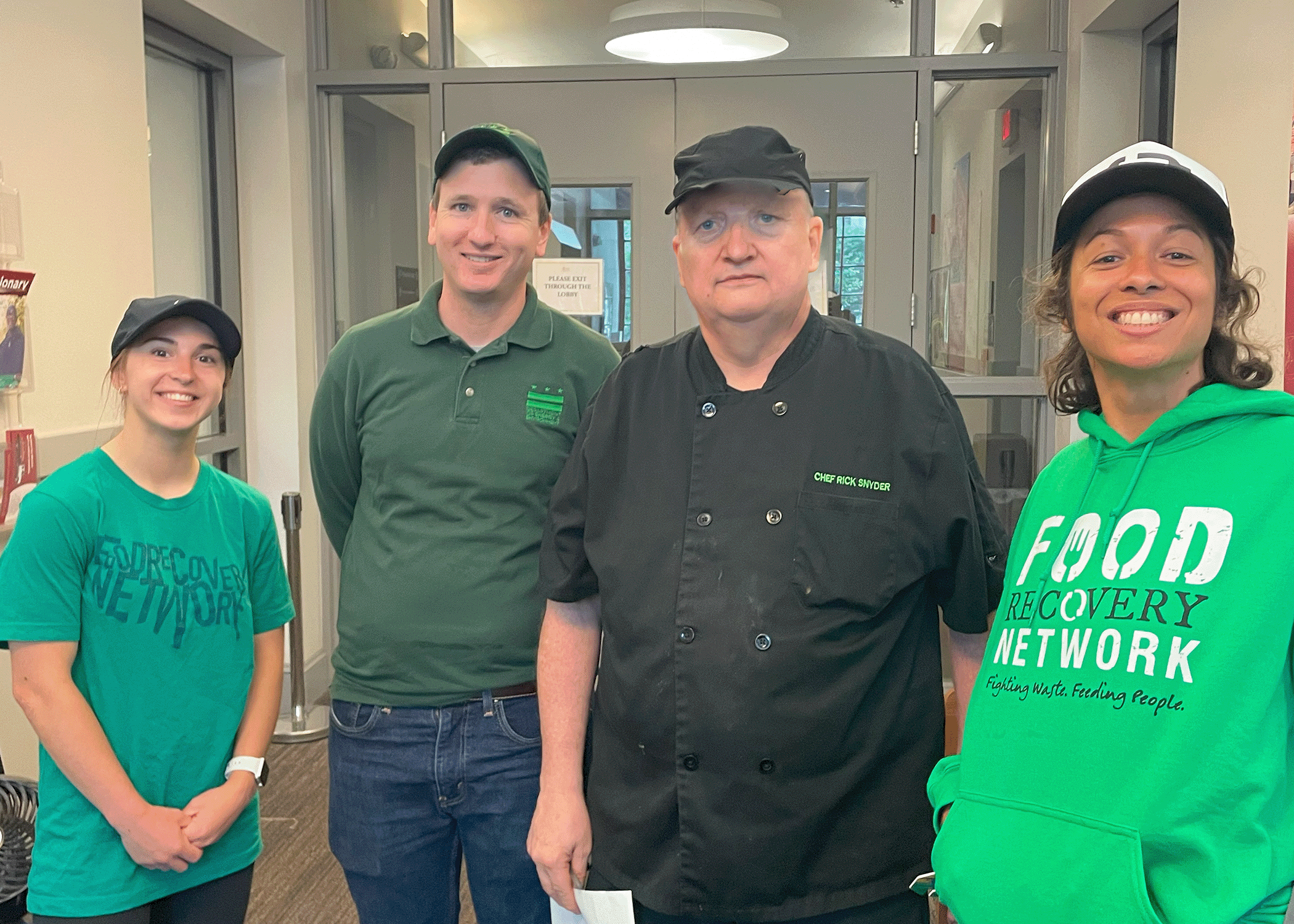The majority of unused food in the United States goes to landfills. Once in a landfill, all of that food — millions of pounds of which is still perfectly good to eat — decomposes and creates burdensome additional and unwanted CO2, methane, and other greenhouse gases. Each year, at commercial and institutional settings — places like farms, large-scale events like sporting events or the event FRN supported at Gaylord National, corporate cafeterias, higher education dining halls, grocery stores, restaurants, and food distribution companies — 26 million tons of food is wasted, representing 40% of all wasted food across our entire food supply chain.
Saying Yes
Gaylord National made a critical decision to say yes to being a positive contributor to their community by sharing their surplus food. And that one decision has had an amazing ripple effect. It is these transformative moments and decisions that FRN seeks to multiply across the food system involving producers, retailers, and consumers.
Our work also aligned with Gaylord National’s commitment to being a more ecologically sustainable business. We both understood the beauty of recovering food meant we could help increase access to food and help the environment. Our joint motivation to help seal the continuation of our efforts. From a foundation of shared commitment, we moved, together. The FRN team designed a short six-week pilot program in partnership with Gaylord National focusing on their specific resources and needs in mind. Those short six weeks quickly demonstrated the potential for substantial impact — we recovered an additional 9,000 pounds of food.
Importantly, over the course of the pilot, it didn’t take long for our teams to begin to work seamlessly together. We determined a schedule for pick-ups that worked for everyone, roles of Gaylord National’s team, roles of the FRN team and those of the team at Union Central Mission. We all discussed what was working well and what we might alter to make the recovery process better for everyone and we had those conversations in the moment with loads of respect for one another. Soon, the recoveries began to take less time to conduct. Before long, everyone began remembering one another’s names, we had opportunities to exchange stories about career paths, families, sports, and current events. We enjoyed talking about what foods were being recovered, how the foods were prepared, and our excitement for the community who would receive this food made with expertise and love.
Yes is a powerful word. From one event to a designed 6 week pilot, Gaylord National deciding to say yes to reconsidering what they could do with their surplus food has helped the lives of DC community members. The power of yes has shown the breadth of difference and increased impact our organizations could make, together. For our extended DC community and for the environment, when we work together, we are unstoppable. Our six-week pilot underscored the importance of consistent cooperative efforts to achieve our mutual goals. Said another way, together, we are feeding a lot of people incredible food and mitigating our footprint on our planet.
Big Impact
I can proudly say that just a year after our initial partnership launch, we’ve recovered nearly 50,000 pounds of delicious surplus food, served nearly 400 unique individuals, and including Central Union Mission, partnered with 7 additional area hunger-fighting agencies. From a sustainability perspective, Gaylord National has mitigated nearly 60.88 tons of CO2 emissions — the equivalent of driving 13 passenger vehicles for a year.













